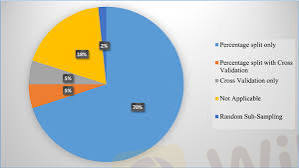
2025-05-07 12:24
IndustryCreating Benchmarking Tools for FX Forecasting
#CurrencyPairPrediction
Creating Benchmarking Tools for FX Forecasting Models is essential for evaluating and comparing the performance of different prediction models. As the field of FX prediction advances, it's crucial to have standardized ways to assess the accuracy, robustness, and profitability of various approaches.
These benchmarking tools would allow researchers and practitioners to compare their models against established benchmarks or other competing models using consistent datasets, evaluation metrics (beyond just accuracy, as discussed in topic 92), and testing methodologies (as explored in topic 83). This could involve creating open-source datasets, defining standardized evaluation protocols, and developing platforms where different models can be submitted and their performance objectively assessed across various currency pairs and timeframes. Effective benchmarking would foster progress in the field by identifying the most promising techniques and highlighting areas for improvement.
Like 0
meena3737
Trader
Hot content
Industry
Event-A comment a day,Keep rewards worthy up to$27
Industry
Nigeria Event Giveaway-Win₦5000 Mobilephone Credit
Industry
Nigeria Event Giveaway-Win ₦2500 MobilePhoneCredit
Industry
South Africa Event-Come&Win 240ZAR Phone Credit
Industry
Nigeria Event-Discuss Forex&Win2500NGN PhoneCredit
Industry
[Nigeria Event]Discuss&win 2500 Naira Phone Credit
Forum category

Platform

Exhibition

Agent

Recruitment

EA

Industry

Market

Index
Creating Benchmarking Tools for FX Forecasting
 Malaysia | 2025-05-07 12:24
Malaysia | 2025-05-07 12:24#CurrencyPairPrediction
Creating Benchmarking Tools for FX Forecasting Models is essential for evaluating and comparing the performance of different prediction models. As the field of FX prediction advances, it's crucial to have standardized ways to assess the accuracy, robustness, and profitability of various approaches.
These benchmarking tools would allow researchers and practitioners to compare their models against established benchmarks or other competing models using consistent datasets, evaluation metrics (beyond just accuracy, as discussed in topic 92), and testing methodologies (as explored in topic 83). This could involve creating open-source datasets, defining standardized evaluation protocols, and developing platforms where different models can be submitted and their performance objectively assessed across various currency pairs and timeframes. Effective benchmarking would foster progress in the field by identifying the most promising techniques and highlighting areas for improvement.
Like 0
I want to comment, too
Submit
0Comments

There is no comment yet. Make the first one.

Submit
There is no comment yet. Make the first one.